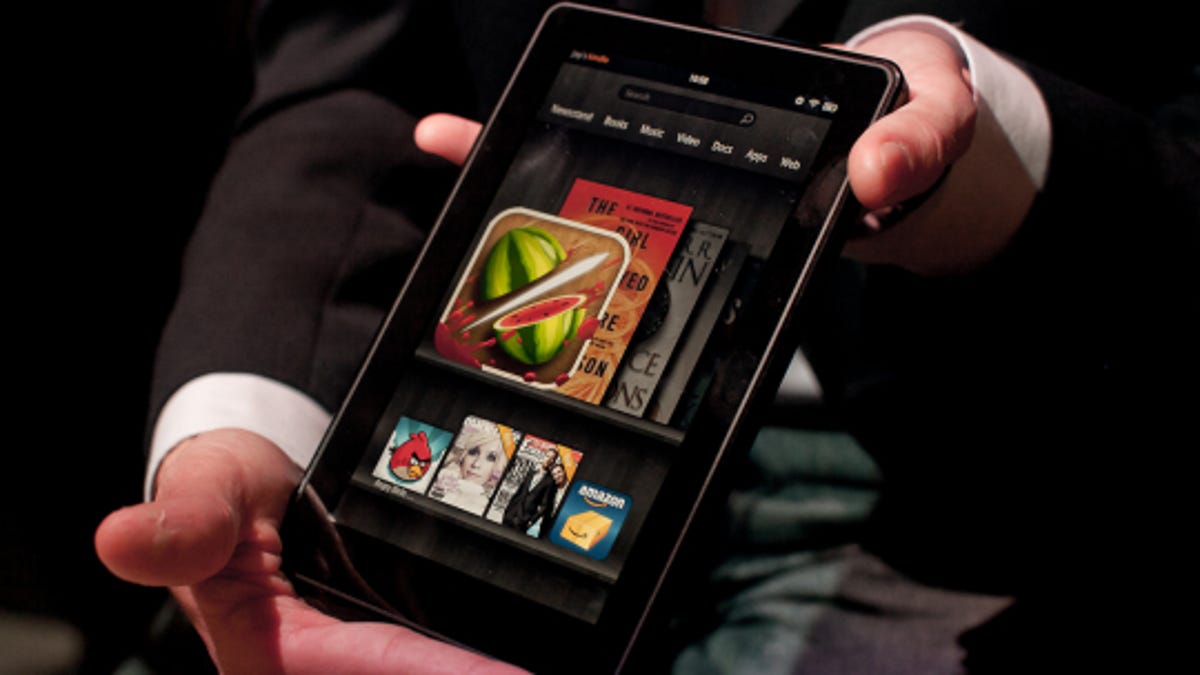Amazon on Kindle Fire: Value in the long term
The Kindle Fire launch does translate into a short-term profit hit, but Amazon is confident that the model behind $199 tablet will pay off over time.

Consternation over Amazon’s profit margins abounds as it rolls out the Kindle Fire--a $199 tablet that most likely means losses at first--but the company is taking a long-term view. In Amazon’s world, the device cost is almost irrelevant to the lifetime value of a Kindle customer.
Wall Street is disappointed about Amazon's third-quarter earnings, which fell short on many counts. Amazon’s third-quarter earnings were hurt by spending on fulfillment centers and Amazon Web Services. In fact, most of Amazon’s profit miss can be attributed to those investments. For good measure, Amazon followed up and said its fourth quarter would be messy due to the launch of the Kindle Fire, which is basically subsidized by the company. Amazon is making millions more Kindle Fire devices due to demand.
The big question is whether the profit hit is worth it?
Amazon CFO Tom Szkutak, speaking on Amazon’s earnings conference call, shed light on how the company thinks. It’s all about the lifetime value of the customer. Kindle Fire buyers will become Amazon Prime subscribers. These Kindle owners will buy more e-books, music and physical goods. Szkutak said:
When you think about the economics of the Kindle business, we think about it in totality. We think of the lifetime value of those devices. So we’re not just thinking about the economics of the device and the accessories; we’re thinking about the content. We are selling quite a bit of special offers devices, which includes ads, so we’re thinking about the advertisement and those special offers and those lifetime values.
Szkutak wasn’t going to cough up details about that lifetime value, but he added:
You know, we have learned a lot over the past couple of years about — since launching Kindle. Once a customer has purchased a device, obviously what else do they buy, and with the launch more recently of special offers and ad-based Kindles, we certainly have some data. We’re still learning, but have some data there that we didn’t have prior to launch. And so, what we’re seeing certainly is that once customers purchase a Kindle and are carrying around this really massive selection at their fingertips, they’re buying more content.
As we think about the lifetime value, we’re thinking very specifically about the device itself, how to make sure that we get just the absolute device in customers — the absolute best device in customers’ hands and have the absolute best content on those devices. And we look at the total economics, which include the device, the accessories, the content, as well as any — the ad-based revenue and special offers. So those are the things that we’re looking at as we think about the lifetime value of a device, and we like what we see.
In other words, the Kindle Fire launch does translate into a short-term profit hit, but Amazon is confident that the model behind $199 tablet will pay off over time.
This story originally appeared at ZDNet's Between the Lines as "Amazon's Kindle Fire economics: A focus on lifetime value of customer."

